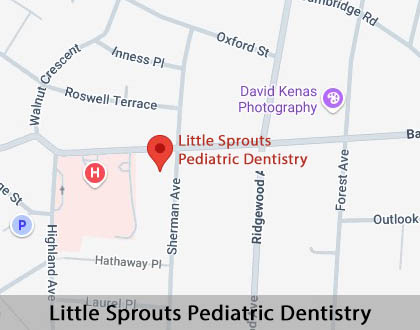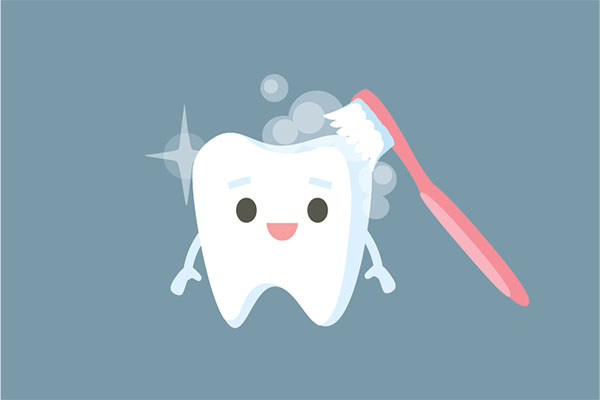Preventative Pediatric Dental Care Glen Ridge, NJ
Preventative care is a key component of oral health for all ages, especially for children. This type of dental care helps identify any red flags and treat them before they become problems. If left untreated, dental issues can have serious long-term implications for a child's health and well-being. As pediatric dentists, we promote setting the foundation of good oral hygiene habits early on in life, such as brushing twice and flossing at least once a day. We also focus on healthy dietary habits and other preventative measures such as mouthguards and early orthodontic intervention. This education and care can lower a child's risk of developing tooth decay, gum disease, and other serious dental problems. Taking care of teeth starts early in childhood and extends throughout life.
Invest in your child's current and future oral health with preventative pediatric dental care. Our team at Little Sprouts Pediatric Dentistry can help. Call us at (973) 221-2919 to learn more about our services or schedule an appointment.
The Importance of Preventative Pediatric Dental Care
Preventative care is a key component of oral health for all ages, especially for children. This type of dental care helps identify problems early on in a child's life before becoming more severe and costly. If left untreated even in the earliest stages of life, dental issues can have serious implications for a child's long-term health and well-being.
Pediatric dentists can also promote good oral hygiene habits early on in life, such as brushing twice and flossing at least once a day. This education and care can lower a child's risk of developing tooth decay, gum disease, and more serious dental problems. Taking care of teeth starts early in childhood and extends throughout life.
“This type of dental care helps identify problems early on in a child’s life before they become more severe and costly.”
When to Visit a Pediatric Dentist
According to the American Academy of Pediatric Dentistry, parents should take their children to the dentist when their first tooth appears or by their first birthday, whichever comes first. A child's first tooth typically comes in around six months of age. Although this may seem like a young age for a child to have their first dental visit, it is necessary to prevent dental problems.
The earlier children begin dental treatment, the better the care for their primary teeth will be. Although primary teeth eventually fall out, they play many essential roles and must remain healthy to carry out those functions. Visiting a pediatric dentist at an early age can also help children feel more comfortable and less likely to develop major dental anxiety.
“According to the American Academy of Pediatric Dentistry, parents should take their children to the dentist when their first tooth appears or by their first birthday, whichever comes first.”
Dental Prophylaxis aka Routine Dental Cleaning
These cleanings are a crucial part of preventing cavities and gingivitis. With proper brushing, flossing and regular visits to the dentist, children can keep cavity-causing bacteria to a minimum and maintain good gum health.
Healthy Lifestyle Choices
A good and balanced diet is essential for a child’s growth and development and plays a key role in the overall dental health. All carbohydrates, often called sugars, can cause tooth decay, regardless of whether they are sweet or savory. Good nutrition involves all the food groups, including moderate amounts of carbohydrates balanced with dairy products, fruits, leafy greens, nuts, and proteins. Good water intake is equally important for oral health as adequate hydration is directly related to the quality of the saliva we produce. Additionally, drinking water regularly also serves to wash food and plaque off the teeth over the course of the day.
“A good diet is essential for a child’s growth and development and plays a key role in overall dental health.”
Preventative Dental Treatments
Preventative dental services include regular fluoride treatments, dental sealants, mouthguards among others. Fluoride makes the enamel, the outermost and hardest part of the tooth, stronger against cavity-causing bacteria. Dental sealants are thin, polymer coatings that are placed on the grooves of the molars to protect teeth from cavities caused by food getting stuck on the chewing surfaces. Mouthguards can help protect the teeth of children who play sports or grind their teeth. Children who grind their teeth at night may also need a nightguard to prevent tooth damage while sleeping. Ask us about these treatments at your next visit.
“According to the American Dental Association, dental sealants can reduce the risk of decay by nearly 80% in molars.”
Sealants
A dentist can perform dental sealant procedures on children's molars. Sealants provide added protection against cavities and tooth decay. For optimal results, children should receive sealants soon after their molars have erupted. Your pediatric dental provider can let you know when to consider sealants.
Frequently Asked Questions
Q. Why are primary teeth important for children?
A. Primary teeth are extremely important and play many different roles in children's health and development. They help children eat, develop proper speech, and hold jaw space for the eruption and proper alignment of permanent teeth. The premature loss of baby teeth can affect a child's oral health.
Q. Why is daily flossing important?
A. Flossing every day is an important part of every person's oral hygiene routine, especially for children. This hygiene practice cleans debris and plaque from the tight spaces between the teeth. Our team can guide children on how to floss properly to get the most benefit.
Q. What happens during my child's first dental visit?
A. A child's first dental visit is usually short and primarily helps the child get used to the dentist. We will check the child's teeth for decay during the exam and look for potential problems with their bite, gums, jaw, and oral tissues. We will also clean their teeth, assess the need for fluoride, and educate parents about oral health care basics for children.
Q. How are dental sealants applied?
A. The process of applying sealants is quick and non-invasive. We will clean and dry the tooth before placing an acidic gel to roughen the tooth surface. After a few seconds, we will remove the gel and dry the tooth before applying the sealant to the grooves of the teeth. Then a special blue light hardens the sealant.
Q. How often should children receive fluoride treatments?
A. Children should receive in-office fluoride treatment every three, six, or 12 months depending on their dental health. Patients who are at risk of developing dental cavities may receive more frequent treatments. Our team can provide parents with information about their child's recommended treatment frequency.
Quality Pediatric Dental Services Can Transform Smiles
By visiting us as soon as possible, our team can help get your child the professional treatment they need.
Definition of Pediatric Dental Terminology
Call Us Today
Preventative pediatric dental care helps children maintain good oral health throughout their lives. Our team at Little Sprouts Pediatric Dentistry can keep your child's smile happy and healthy. Call us today at 973-221-2919 to learn more about our services or schedule an appointment.
If you live in the Glen Ridge area, call 973-221-2919 for an appointment in our Glen Ridge office.
Helpful Related Links
- American Dental Association (ADA). Glossary of Dental Terms. 2025
About our business and website security
- Little Sprouts Pediatric Dentistry was established in 2025.
- We accept the following payment methods: American Express, Check, Discover, MasterCard, and Visa
- We serve patients from the following counties: Essex County
- We serve patients from the following cities: Glen Ridge, Montclair, Bloomfield, Nutley, and Verona
- Norton Safe Web. View Details
- Trend Micro Site Safety Center. View Details







